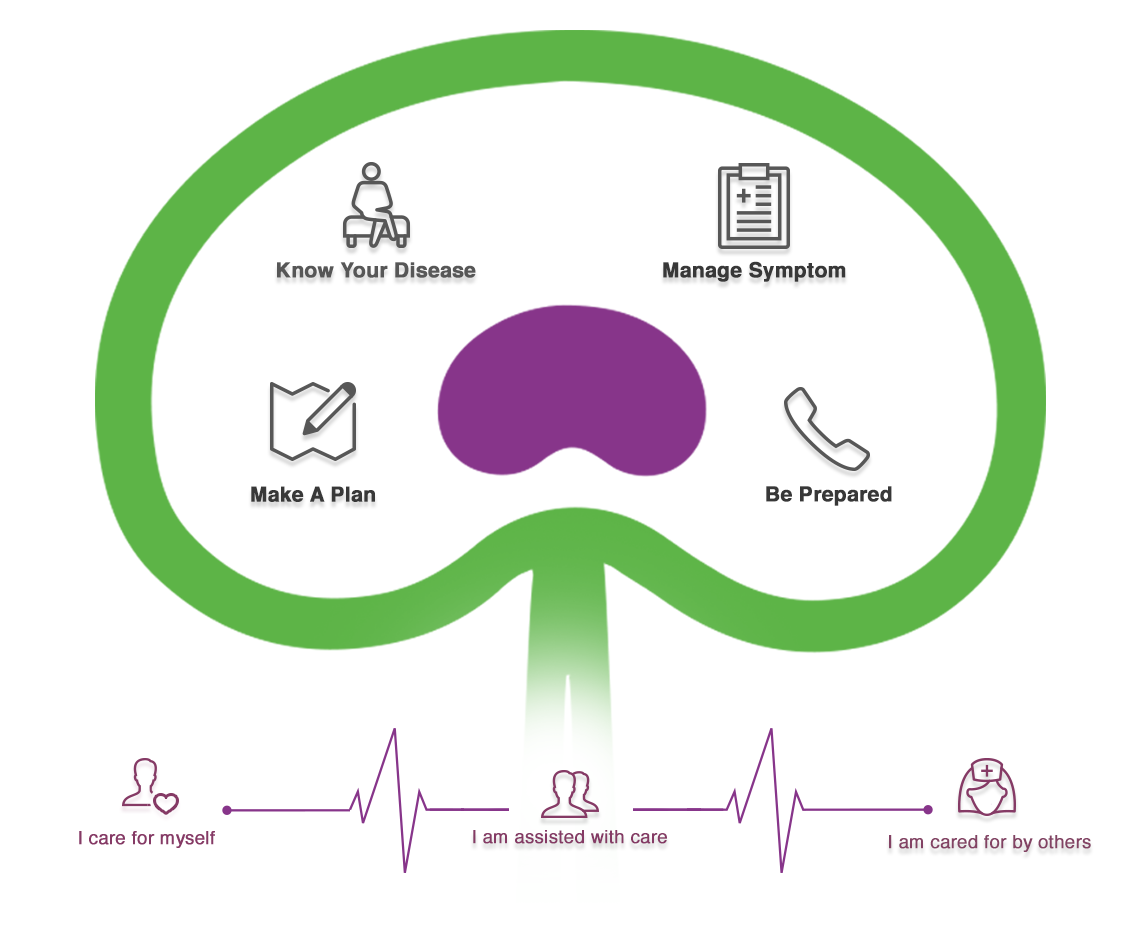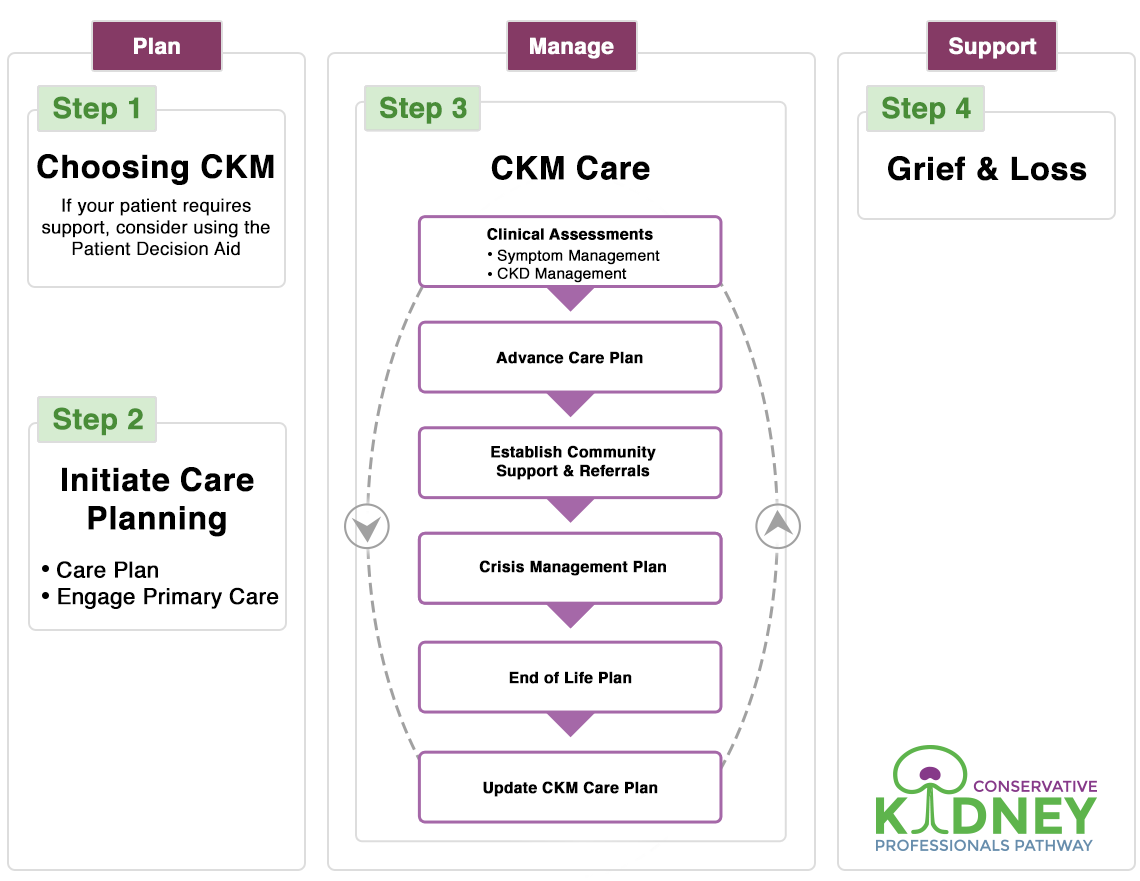Acidosis Guideline
Guiding Principles
People with CKD are at increased risk of metabolic acidosis. This can lead to bone loss, muscle wasting, and fatigue. The primary intervention is the use of sodium bicarbonate. Bloodwork and interventions should be based on patient preference - if the patient wishes to have treatment of acidosis for potential symptom benefits, it would be reasonable to monitor CO2 every three months.
GFR 15 - 5 | Slow Decline/Deteriorating | Last 0-5 years of life
The recommended intervention for treating acidosis contributes to a higher pill burden for patients. However, there may be benefits in terms of bone health, nutrition and energy. Therefore, it may be reasonable for patients to continue taking sodium bicarbonate (if indicated) for as long as they feel that it is not burdensome.
GFR 5 - 0 | Intensive/Near Death | Last 0-2 months of life
When the patient is no longer able to swallow pills, or is bed bound and approaching the end of life, it is appropriate to stop this intervention and related bloodwork.
Objectives
To guide the multidisciplinary approach to evaluation and management of metabolic acidosis in conservatively managed patients with CKD based on the following inclusion criteria:
- Serum total CO2 less than 22 mmol/L.
- Stable clinical status as determined by a physician.
Patients will be excluded in the presence of:
- Overt CHF
- Uncontrolled hypertension (greater than 170 mmHg systolic)
Interventional guidelines do not replace individualized care and clinical expertise.
Acidosis (Metabolic) - Clinical Algorithm for CKM Patients
Sodium Bicarbonate will be ordered in either 325 mg or 500 mg tablets
*To be taken on an empty stomach (at least one hour pre or post meals)*
| Step 1 | One tablet once a day |
| Step 2 | One tablet twice a day |
| Step 3 | Two tablets twice a day |
| Step 4 | Three tablets twice a day |
| Step 5 | Four tablets twice a day |
Additional Resources:



